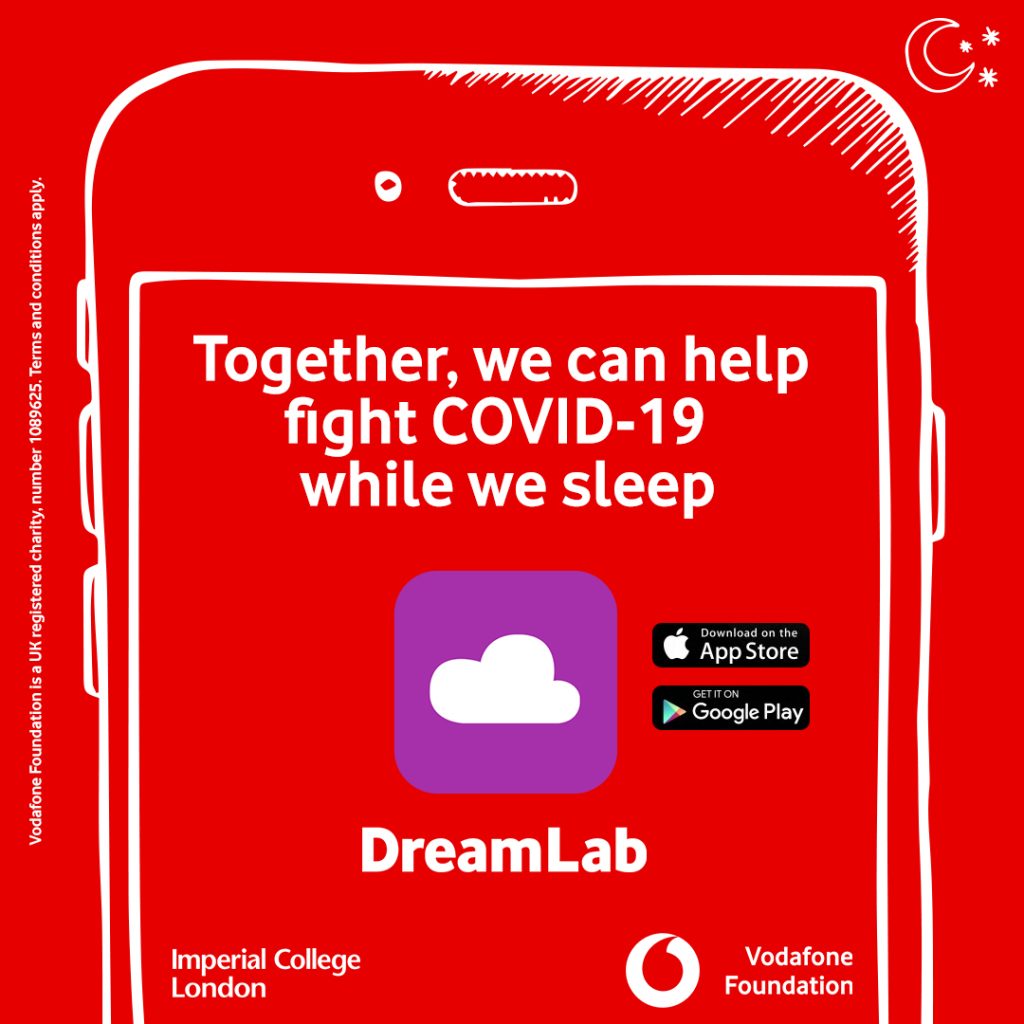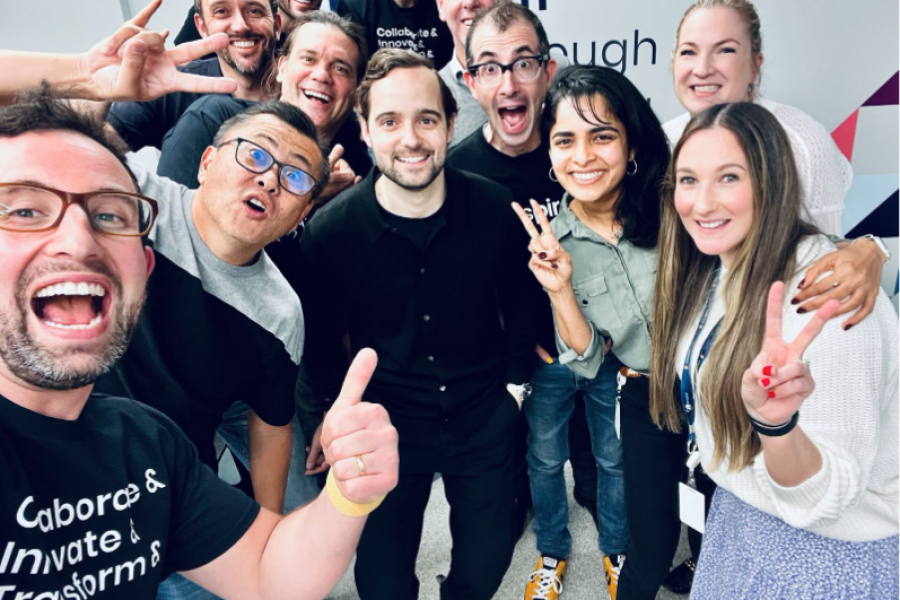Transpire is helping Vodafone Foundation fight the ongoing coronavirus pandemic by repurposing the cutting-edge technology it developed for DreamLab.
A new update to the award-winning mobile app enables users to once again crunch medical research data for Imperial College London, only this time it will be used to better understand COVID-19.
The team at Transpire has been working tirelessly to tweak both the front and backend of DreamLab to not only ensure that brand new data can be processed correctly but also maintain the app’s seamless user experience.
This has been made easier by the fact that DreamLab was built with a scalable yet secure AWS architecture from the get-go. As a result, it continues to roll out to numerous countries worldwide and in the process, help partners with their own complex medical research challenges.
“The agile nature of DreamLab has enabled us to react quickly and temporarily refocus to address COVID-19 and the unprecedented set of circumstances the world is facing,” said Alyssa Lane, Head of Vodafone Foundation Australia.
“Australians have faced an unprecedented set of challenges as a result of COVID-19. While most of us do our part by staying home, DreamLab offers people the power to help by simply downloading the app and joining the DreamTeam.”
Download the DreamLab app today.
Commenting on the DreamLab update, Transpire CEO Luke Smorgon said: “The team at Transpire worked practically around the clock with our partners at Vodafone Foundation and Imperial College London to get this update to DreamLab out to help fight COVID-19.
“We are all acutely aware of how the technology we’ve built with DreamLab can be rapidly repurposed to fight a range of global health issues, and I’m immensely proud of the dedication of everyone involved.”
In a call to The Australian, Smorgon issued a rallying cry that “everyone can play a part,” noting the ease in which people are able to contribute and help fight COVID-19 with DreamLab.
“Australians have been great so far following the medical advice we’ve been given, and we think they can be great contributors here too to fighting this disease that is ravaging the world,” he said.
“You can do it in your pyjamas or your desk if you’re working from home, and #JoinTheDreamTeam.”
Responding to COVID-19 with a innovative yet proven approach
Even though potential COVID-19 vaccines have already entered clinical human testing, the process of developing specific medicine for this infectious disease is slow and costly.
For this reason, DreamLab’s Corona-AI project is adopting a different approach – speeding up the discovery of novel anti-viral components in existing medicines and helping the hunt for anti-viral molecules in food.
This is well within the realms of possibility too, as DreamLab has made similar scientific breakthroughs in the past for preventing and treating cancer.
In 2019, DreamLab helped to identify anti-cancer molecules in a range of foods including carrots, celery and oranges. The same findings also suggested that existing anti-diabetic and antimicrobial drugs could play a role in anti-cancer therapy.
As Head of the Department of Surgery and Cancer from Imperial College London, Professor George Hanna explains: “These are unprecedented times that demand radical and unprecedented scientific solutions.
“The DreamLab: Corona-AI project team have taken their knowledge and success in using AI technology to discover anti-cancer properties in existing drugs and foods, and put that to use against this new global threat.”
How it Works – DreamLab Corona-AI
Traditional experimental research could take years to develop, but the cloud-based processing approach of DreamLab has the potential to drastically reduce the time it takes to analyse the huge amount of data that exists.
This is because the collective power of DreamLab’s individual users work like a ‘smartphone supercomputer’. Research problems from Imperial College London are processed using a novel algorithm within DreamLab. Once complete, the result is sent back to researchers for analysis.
A DreamLab network of just 100,000 users has the combined power of a supercomputer that can crunch the data from this phase in a time that otherwise would require a decade using a standard desktop computer.
The initial phase of Project Corona-AI will test combinations of up to two molecules of existing drugs or drug-like molecules in foods against host-virus interactomes of coronavirus strains including SARS-Cov-2 – the causative agent responsible for the current COVID-19 pandemic.
Research findings will be made available to the medical profession to facilitate clinical trials. In addition, any food-related findings will be translated into dietary advice that can be implemented by the medical community for patients recovering from COVID-19.
Dr Kirill Veselkov from the Department of Surgery and Cancer at Imperial College London, who is leading the research, said: “We urgently need new treatments to tackle Covid-19. There are existing drugs out there that might work to treat it; and the great thing about repurposing existing drugs is that we already know they are safe and therefore could get them to patients quickly. DreamLab creates a supercomputer that enables us to do this important work in a relatively short time frame.”
DreamLab is designed, architected and developed by Transpire. Discover more about the project here or get in touch with us to discuss.









